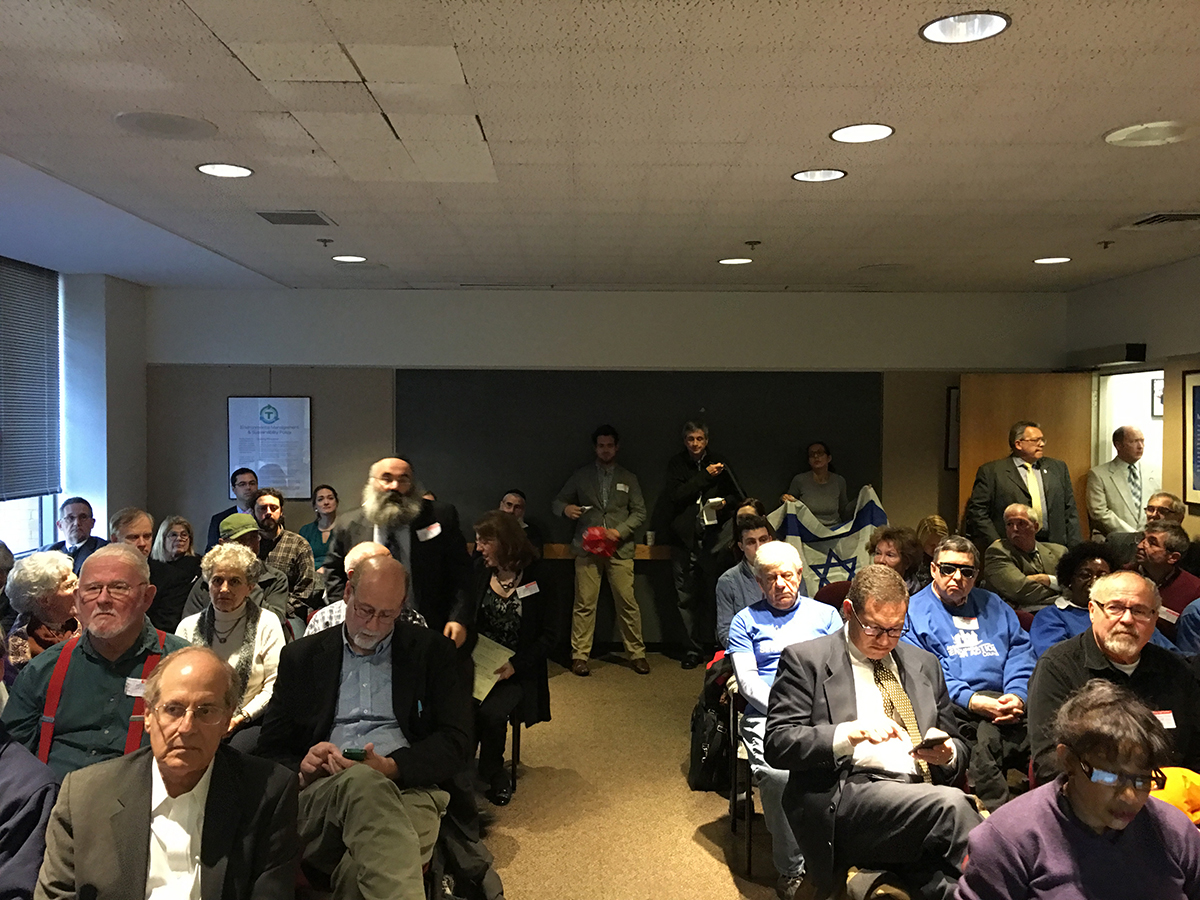MBTA Board Meeting Briefly Becomes Israel-Palestine Proxy War

Palestinian and Israeli activists pack an MBTA Board meeting in November 2015. Photo by Garrett Quinn
A regular meeting of the MBTA Fiscal & Management Control Board morphed into the latest noisy proxy war between Palestinian and Israeli activists on Monday when the board voted unanimously to strengthen its existing ban on political advertising on T property.
For almost an hour, person after person approached the board during the public comment hearing to state why the MBTA should remove ads sponsored by the Palestinian Advocacy Project, or why they should stay up. A majority of the speakers represented the pro-Israel side and demanded the controversial ads be removed from MBTA property. A handful of pro-Palestinian and pro-free speech advocates argued in support of the ads and against a change in MBTA policy.
“Today, I question the intelligence and general judgment of this board. This sounds like an invitation to Boston children to ISIS summer camp,” said Paul Fleishman of Brookline.
The backer of the ads, Richard Colbath-Hess, said the ads were factual and covered by the MBTA’s advertising policies.
“The statistics on the ad are factual. I am sorry there are anti-Palestinian groups that don’t like it, but it is the truth. The truth is sometimes uncomfortable,’ said Colbath-Hess.
When the board went into an executive session, the angry activists moved their argument to the hallway with a large gaggle of reporters and cameras in tow. For almost twenty minutes, the argument continued at an uncomfortably loud volume. MassDOT staffers looked on with expressions of bewilderment, as activists across all ages groups yelled at each other not about the quality of the T service, but about alleged human rights abuses in a land thousands of miles away.
“We don’t want to deal with this bullshit. We’re not equipped to moderate this kind of dispute,” said one MassDOT official, speaking anonymously.
The MBTA’s new restriction on political advertising is broad enough that it includes pretty much every contentious public issue by defining them as follows:
“The advertisement concerns political issues or expresses or advocates an opinion, position or viewpoint on a matter of public debate about economic, political, moral, religious, or social issues.”
MBTA counsel John Englander recommended the new provisions to the board on the grounds that they will save the agency money on litigation expenses.
“It will minimize the need of staff and this board to police proposed advertisements as to whether they are disparaging,” said Englander.
Englander said the proposed policy change would bring the MBTA in alignment with policies in place in New York and Chicago. Additionally, they are covered by the 1974 Supreme Court case, Lehman v. City of Shaker Heights.
A new provision of the ad policy also blocks any advertising for electronic cigarettes, though there was little fanfare over that rule change.

